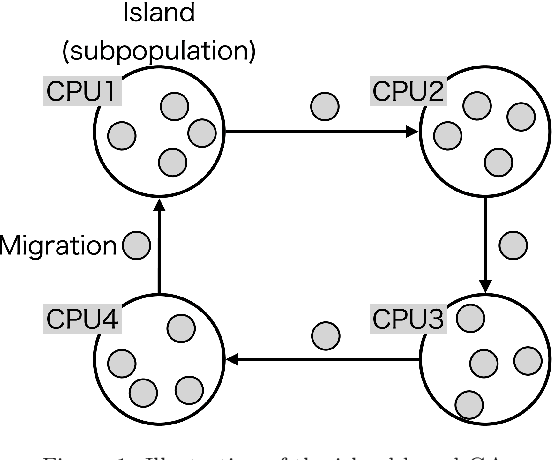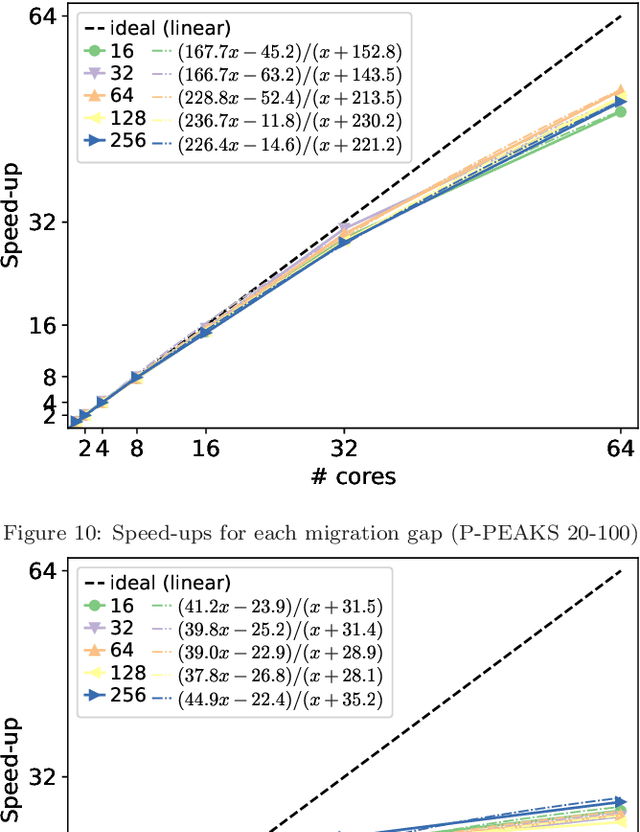A Fresh Approach to Evaluate Performance in Distributed Parallel Genetic Algorithms
Paper and Code
Jun 18, 2021



This work proposes a novel approach to evaluate and analyze the behavior of multi-population parallel genetic algorithms (PGAs) when running on a cluster of multi-core processors. In particular, we deeply study their numerical and computational behavior by proposing a mathematical model representing the observed performance curves. In them, we discuss the emerging mathematical descriptions of PGA performance instead of, e.g., individual isolated results subject to visual inspection, for a better understanding of the effects of the number of cores used (scalability), their migration policy (the migration gap, in this paper), and the features of the solved problem (type of encoding and problem size). The conclusions based on the real figures and the numerical models fitting them represent a fresh way of understanding their speed-up, running time, and numerical effort, allowing a comparison based on a few meaningful numeric parameters. This represents a set of conclusions beyond the usual textual lessons found in past works on PGAs. It can be used as an estimation tool for the future performance of the algorithms and a way of finding out their limitations.
 Add to Chrome
Add to Chrome Add to Firefox
Add to Firefox Add to Edge
Add to Edge